Professor Michelle Ellefson

Professor of Cognitive Science, Faculty of Education
Fellow, Undergraduate Tutor and Director of Studies for Education, Gonville & Caius College
Contact information
01223 767684
Faculty of Education
184 Hills Road
Cambridge
CB2 8PQ
United Kingdom
https://sites.google.com/site/instructlab/
http://www.educ.cam.ac.uk/people/staff/ellefson/
http://www.neuroscience.cam.ac.uk/directory/profile.php?mellefson
http://www.cai.cam.ac.uk/people/michelle-ellefson
Biography
Michelle Ellefson convenes the INSTRUCT Research Group (Implementing New Student and Teaching Resources Using Cognitive Theory). Michelle has scientific interests in cognition, neuroscience, child development, and education, integrating them into a multi-disciplinary research programme aimed at improving math and science education. Using an iterative process, she pairs laboratory based research with classroom learning and curriculum development in order to better understand mechanisms responsible for cognitive development and to leverage that understanding to improve educational practice. Her current research projects focus on the role of executive functions in school achievement and how children's reasoning about causes and effects impacts how they think about scientific phenomena. In addition, she is applying specific cognitive principles to classroom learning, including simplicity and desirable difficulties. Initially trained in developmental cognitive neuroscience, her interests in improving cognitive outcomes for all children have inspired her to reach beyond this foundational training to develop her integrative, multi-disciplinary approach that informs both school practice and theoretical accounts of cognitive development.
Research interests
Applications of cognitive science/neuroscience to improved educational practice
Executive functions
Task switching
Causal reasoning
Scientific reasoning
Science education
Publications
Patel, J., Aldercotte, A., Tsapali, M., Serpell, Z., Parr, T., & Ellefson, M.R. (2021). The zoo task: A novel metacognitive problem-solving task developed with a sample of African American children from schools in high poverty communities. Psychological Assessment, 33, 795-802. https://doi.org/10.1037/pas0001033 Preprint: https://psyarxiv.com/78y96/ Data: https://osf.io/gkac3/ Zoo Task (Creative Commons license): https://osf.io/c6aq7/
Vasilopoulos, F., & Ellefson, M.R. (2021). Investigation of the associations between physical activity, self-regulation and educational outcomes in childhood. PLOS One, 16, e0250984. https://doi.org/10.1371/journal.pone.0250984 Preprint: https://psyarxiv.com/th43u/
Xu, C., Ellefson, M.R., Ng, F., Wang, Q., & Hughes, C. (2020). An East-West contrast in executive function: Measurement invariance of computerized tasks in school-aged children and adolescents. Journal of Experimental Child Psychology, 199, 104929. https://doi.org/10.1016/j.jecp.2020.104929
Ellefson, M.R., Zachariou, A., Ng, F.F., Wang, Q., & Hughes, C. (2020). Do executive functions mediate the link between socioeconomic status and numeracy skills? A cross-site comparison of Hong Kong and the United Kingdom. Journal of Experimental Child Psychology, 194, 104734. https://doi.org/10.1016/j.jecp.2019.104734
Barsham, H., & Ellefson, M.R. (2020). Can teaching upper primary about the ‘testing effect’ increase feelings of confidence about test-taking? Impact, 8. Retrieve from: https://impact.chartered.college/article/can-teaching-upper-primary-test...
Tsapali, M., Paes, T.M., & Ellefson, M.R. (2020). Researching cognitive development in primary schools: Methods and practical considerations. Impact, 8, 52-55. Retrieve from: https://impact.chartered.college/article/researching-cognitive-developme...
Ellefson, M.R., Baker, S.T., & Gibson, J. (2019). Lessons for successful cognitive developmental science in educational settings: The case of executive functions. Journal of Cognition and Development, 20, 253-277. https://doi.org/10.1080/15248372.2018.1551219
Tsapali, M., & Ellefson, M.R. (2019). Using direct instruction to train primary school children in decision-making skills in the science classroom. Impact, 5, 18-21. Retrieved from: https://impact.chartered.college/article/utilising-direct-instruction-tr...
Poletiek, F.H., Conway, C.M., Ellefson, M.R., Lai, J., Bocanegra, B. R., & Christiansen, M. H. (in press). Under What Conditions Can Recursion be Learned? Effects of Starting Small in Artificial Grammar Learning of Center Embedded Structure, Cognitive Science. DOI: 10.1111/cogs.12685
Ellefson, M.R., Ng, F.F., Wang, Q., & Hughes, C. (2017). Efficiency of executive function: A two-generation cross-cultural comparison of samples from Hong Kong and the United Kingdom. Psychological Science, 28, 555-566. DOI: 10.1177/0956797616687812Teparek, M., Morgan, R., Ellefson, M., & Kingsley, D. (2017). Starting from the end: what to do when restricted data is released. Data Science Journal, 16, 10. DOI: 10.5334/dsj-2017-010Goedert, K.M., Ellefson, M.R., & Rehder, B. (2014). Differences in the weighting and choice of evidence for plausible versus implausible causes. Journal of Experimental Psychology: Learning Memory and Cognition, 40, 683-702. DOI:10.1037/a0035547Hughes, P.W., & Ellefson, M.R. (2013). Inquiry-based training improves teaching effectiveness of biology teaching assistants. PlosONE, 8, e78540. DOI:10.1371/journal.pone.0078540Apedoe, X.A., Ellefson, M.R., & Schunn, C.D. (2012). Learning together while designing: Does group size make a difference? Journal of Science Education and Technology, 21, 83-94. DOI:10.1007/s10956-011-9284-5Vousden, J.I., Ellefson, M.R., Solity J., & Chater, N. (2011). Simplifying reading: Applying the simplicity principle to reading. Cognitive Science, 35, 34-78. DOI:10.1111/j.1551-6709.2010.01134.xEllefson, M.R., Treiman, R., & Kessler, B. (2009). Learning to label letters by sounds or names: A comparison of England and the United States. Journal of Experimental Child Psychology, 102, 323-341. DOI:10.1016/j.jecp.2008.05.008Apedoe, X.A., Reynolds, B., Ellefson, M.R., & Schunn, C.D. (2008). Bringing engineering design into high school science classrooms: The heating/cooling unit. Journal of Science Education and Technology, 17, 454-465. DOI:0.1007/s10956-008-9114-6Ellefson, M.R., Brinker, R.A., Vernacchio, V.J., & Schunn, C.D. (2008). Design-based learning for biology: Genetic engineering experience improves understanding of gene expression. Biochemistry and Molecular Biology Education, 36, 292-298. DOI:10.1002/bmb.20203Ellefson, M.R., Shapiro, L.R., & Chater, N. (2006). Asymmetrical switch costs in children. Cognitive Development, 21, 108-130. DOI:10.1016/j.cogdev.2006.01.002
 Cambridge Centre for
Cambridge Centre for